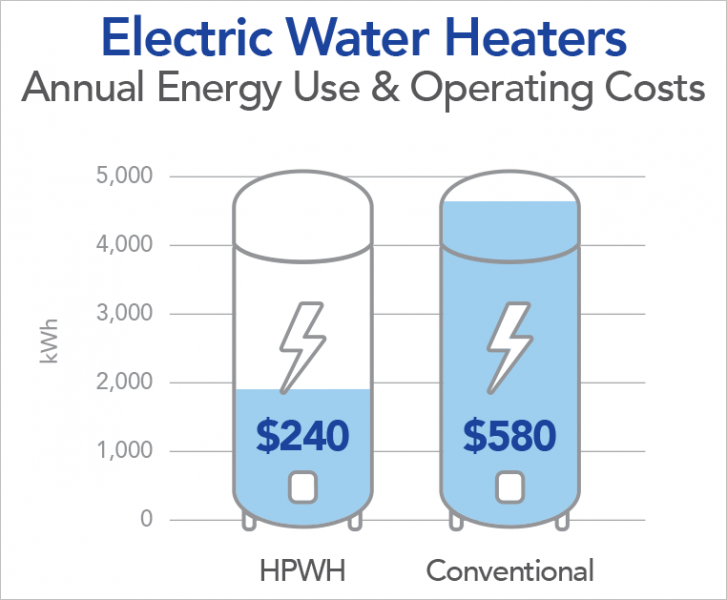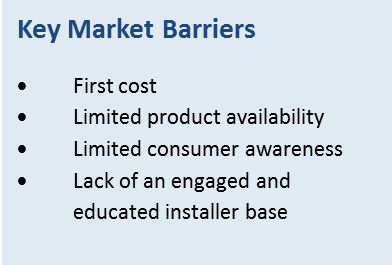Water heating is the second highest energy use in a typical U.S. home, accounting for nearly 17% of residential energy consumption (U.S. Energy Information Administration and Butzbaugh, 2017). Although natural gas-fueled water heaters account for about 48% of the market, and fuel oil, wood, and solar accounting for another 7%, electric water heaters make up about 45% of the market and offer the most opportunity for energy savings in water heating (Butzbaugh, 2017 and Wilson, 2017).
Heat pump water heaters (HPWH) are well-positioned to reduce water heating loads in homes with electric resistance water heaters. HPWHs are ENERGY STAR qualified and use 60-70% less energy than electric resistance water heaters, saving consumers more than $340 annually on average. The savings are estimated to offset the higher costs of the system in three to four years—less than half a HPWH’s lifetime (Butzbaugh, 2017).
HPWHs can also play a role in a utility’s strategy to manage peak energy loads. The use of HPWHs can permanently reduce peak loads for water heating by up to 50%, compared to homes with conventional electric resistance water heaters (Widder, 2013). Controls on both types of electric water heaters can be used to curtail peak loads when needed.
HPWHs at a Glance
Heat Pump Water Heaters: Opportunity by the Numbers

In addition to saving energy, utilities can use heat pump water heaters as part of demand response programs. HPWHs provide similar load control options as resistance water heaters, but offer permanent reductions in energy consumption and a more gradual recovery after a peak power reducing event.

Initiatives
 Residential energy efficiency programs can increase consumer awareness of HPWHs as a more efficient alternative to electric resistance water heaters and can help reduce barriers to market adoption. Several well-established HPWH initiatives have developed best practices on promoting the purchase and installation of energy efficient HPWHs. These organizations promote heat pump water heaters and are available to share their strategies for market transformation and best practices in program design and implementation.
Residential energy efficiency programs can increase consumer awareness of HPWHs as a more efficient alternative to electric resistance water heaters and can help reduce barriers to market adoption. Several well-established HPWH initiatives have developed best practices on promoting the purchase and installation of energy efficient HPWHs. These organizations promote heat pump water heaters and are available to share their strategies for market transformation and best practices in program design and implementation.
Resources
The resources included here can help utilities, municipalities, installers, retailers, and others understand and promote HPWHs.
